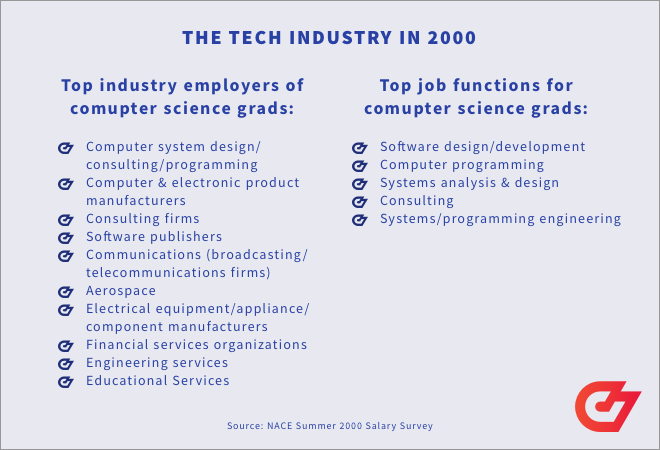
How do you create a LinkedIn headline? Your headline should focus on the outcome and not just the product. This will convey your expertise and build credibility. The headline should include your current job title and the company name. You should also mention your unique selling point. Here are some tips to make your headline as compelling as possible. Let's take a look at some examples. LinkedIn headlines should contain your current job title, company name, and current position. The headline should contain a compelling call-to-action.
LinkedIn headlines focus on outcomes rather than products.
Your headline should contain the word "outcome" to help you stand apart from your competitors. Think about what the prospective customer will experience after working with you. Does your headline reflect their experience? Does it convey your expertise? It will make them choose you over other candidates. If you are a consultant, writer, or editor, your headline should reflect the things that make you different from others.

Rosi Ross's LinkedIn headline highlights her experience with digital media. This title grabs people’s attention and drives interest in her profile. She even expatriate to the USA after creating this headline. In order to attract attention, she also included her job title. This helped her get a job in the USA.
They increase credibility
Your headlines should clearly communicate your message, communicate the value of your product, and inspire action. It is possible to use catchy headlines that include a unique word or rhyme, but they should not be distracting from your value proposition. Here are some guidelines to help you create great LinkedIn headlines.
If you choose a title which highlights your expertise, and include a brief summary on your work history, people will be able to easily see your profile. You should include the job title. However, you should not focus on the salary of the employee or your call to actions. Because students don't have work experience, it may be difficult for them to create a compelling headline.
They lack a call-to-action
LinkedIn users detest headlines with no call-to-action. Make your headlines more persuasive and compelling to convince people to read your content. Here are some examples of bad headlines:

LinkedIn headlines must contain keywords or phrases that employers will use to find potential employees. To describe my business, I used the words'marketing' and'sales' in the following example. I made sure to include at minimum three keywords that would be found when people search for my job. These keywords are also crucial to your LinkedIn profile. You must have a catchy headline if you wish to be found on LinkedIn by recruiters.
FAQ
Which industries use consultants
There are many different types of consultants. Many consultants specialize in a particular type of business. Others may be more focused on multiple types.
Some consultants work exclusively for private businesses, while others represent large corporations.
Some consultants can also help businesses all around the globe.
What is a consultant?
Consultants are people who provide services to others. This is more than a job title. You help others achieve their goals. You do this by helping them understand their options and helping them make the right choices.
Consultants are experts in finding solutions to the problems and challenges that arise while working on projects. They provide advice and guidance about how to implement those solutions.
A consultant should be able to answer questions about anything related to business, technology, finance, law, management, leadership, strategy, operations, customer service, human resources, etc.
What qualifications are required to become a consultant?
Not only is it important to have an MBA but you should also have business consulting experience. Two years experience should be gained in consulting or training for a major corporation.
You will need to have worked closely alongside senior management teams in order to develop strategy projects. This will require you to be comfortable sharing your ideas with clients and getting their buy-in.
You'll also need to pass a professional qualification exam such as the Chartered Management Institute's Certified Management Consultant (CMC) certification.
Why would a company employ a consultant to help them?
Consulting provides expert advice about how to improve your business performance. They don't sell products.
Consulting helps companies make better decisions. They provide sound analysis and offer suggestions for improvement.
Consultants often work closely alongside senior management teams to help understand what they need to succeed.
They also provide leadership training and coaching to ensure employees develop the skills necessary to perform at peak levels.
They might advise businesses on how to reduce costs, streamline processes, or increase efficiency.
What was the origin of modern consultancy?
Accounting professionals were the first to become consultants. They helped companies manage their finances. Their skills in managing financial information led to them being called "accounting consultant". They soon expanded their roles into other areas like human resources management.
The French word meaning "to advise" in French is what gave rise to the term "consultant". This term was originally used by businessmen to denote someone who could give guidance on how to run an enterprise. In fact, most business owners today still use the word consultant when referring to any kind of professional advisor.
Statistics
- According to statistics from the ONS, the UK has around 300,000 consultants, of which around 63,000 professionals work as management consultants. (consultancy.uk)
- WHY choose me: Why your ideal client should choose you (ex: 10 years of experience and 6-week program has helped over 20 clients boost their sales by an average of 33% in 6 months). (consultingsuccess.com)
- Over 62% of consultants were dissatisfied with their former jobs before starting their consulting business. (consultingsuccess.com)
- My 10 years of experience and 6-step program have helped over 20 clients boost their sales by an average of 33% in 6 months. (consultingsuccess.com)
- 67% of consultants start their consulting businesses after quitting their jobs, while 33% start while they're still at their jobs. (consultingsuccess.com)
External Links
How To
How To Find The Best Consultant?
It is important to first ask yourself what you expect from a consultant when searching for one. Before you begin looking for a consultant, it is important to know what your expectations are. It is important to make a list with all the requirements you have for a consultant. These could include professional expertise, technical skills and project management abilities, communication skills, availability, and other things. Once you have identified your requirements, you might consider asking friends and colleagues to recommend you. Ask your friends and colleagues if they have had bad experiences with consultants in the past. Compare their recommendations with yours. You can also do some online research if you don't know of any. There are many websites, such as LinkedIn, Facebook, Angie's List, Indeed, etc., where people post reviews of their previous work experiences. Take a look at comments and ratings from others, and use that data to find potential candidates. After you've compiled a list of potential candidates, it is time to reach out to them and schedule an interview. Talking through your requirements during the interview is a good idea. Ask them questions about how they can assist you in achieving those goals. It doesn't matter whether they were recommended to you or not; just ensure that they understand your business objectives and can demonstrate how they can help you reach those goals.